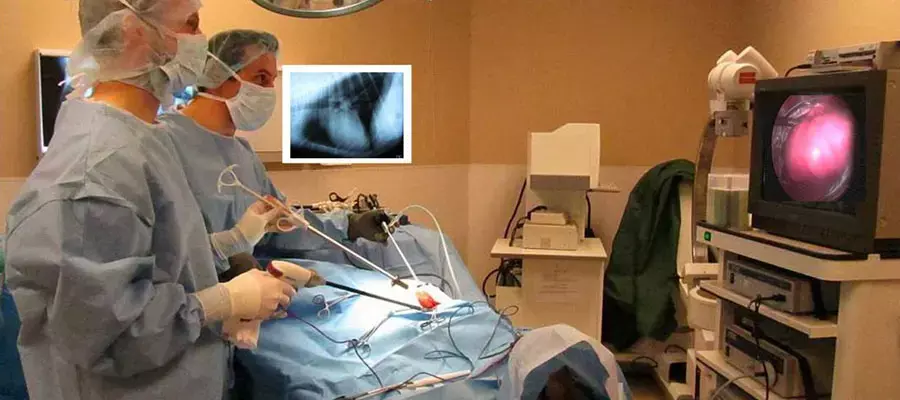- Home
- Medical news & Guidelines
- Anesthesiology
- Cardiology and CTVS
- Critical Care
- Dentistry
- Dermatology
- Diabetes and Endocrinology
- ENT
- Gastroenterology
- Medicine
- Nephrology
- Neurology
- Obstretics-Gynaecology
- Oncology
- Ophthalmology
- Orthopaedics
- Pediatrics-Neonatology
- Psychiatry
- Pulmonology
- Radiology
- Surgery
- Urology
- Laboratory Medicine
- Diet
- Nursing
- Paramedical
- Physiotherapy
- Health news
- Fact Check
- Bone Health Fact Check
- Brain Health Fact Check
- Cancer Related Fact Check
- Child Care Fact Check
- Dental and oral health fact check
- Diabetes and metabolic health fact check
- Diet and Nutrition Fact Check
- Eye and ENT Care Fact Check
- Fitness fact check
- Gut health fact check
- Heart health fact check
- Kidney health fact check
- Medical education fact check
- Men's health fact check
- Respiratory fact check
- Skin and hair care fact check
- Vaccine and Immunization fact check
- Women's health fact check
- AYUSH
- State News
- Andaman and Nicobar Islands
- Andhra Pradesh
- Arunachal Pradesh
- Assam
- Bihar
- Chandigarh
- Chattisgarh
- Dadra and Nagar Haveli
- Daman and Diu
- Delhi
- Goa
- Gujarat
- Haryana
- Himachal Pradesh
- Jammu & Kashmir
- Jharkhand
- Karnataka
- Kerala
- Ladakh
- Lakshadweep
- Madhya Pradesh
- Maharashtra
- Manipur
- Meghalaya
- Mizoram
- Nagaland
- Odisha
- Puducherry
- Punjab
- Rajasthan
- Sikkim
- Tamil Nadu
- Telangana
- Tripura
- Uttar Pradesh
- Uttrakhand
- West Bengal
- Medical Education
- Industry
Thoracoscopy safe surgical option for Gross type C esophageal atresia: Study

Esophageal atresia (EA) and tracheoesophageal fistula (TEF) is one of the most common congenital malformations of the esophagus, with an incidence of 1/2500–1/4500.
Recent study findings suggest that thoracoscopy surgery is safe and effective surgical option for patients with Gross type C Esophageal atresia (EA) and tracheoesophageal fistula (TEF). The study findings were published in the journal BMC Surgery on November 22, 2021.
Several studies suggest the superiority of thoracoscopic EA/TEF. However, the procedure is technically demanding due to the restricted working space of the neonatal thorax combined with inherent difficulties of using thoracoscopic instruments to perform an esophageal anastomosis under tension and therefore has not been replaced thoracotomy. Recently, researchers of the Beijing Children's Hospital, Beijing, China conducted a study to compare the clinical outcomes between thoracoscopic approach and thoracotomy surgery in patients with Gross type C EA/TEF.
In this retrospective study, the researchers included a total of 190 patients with Gross type C EA/TEF who underwent surgery. They divided the patients into two groups depending on the surgical approach [thoracoscopic (n = 62) and thoracotomy (n = 128) ] and compared the perioperative factors and postoperative complications between the two groups.
Key findings of the study:
- On comparing clinical characteristics between the two groups, the researchers found significant differences in associated anomalies, method of fistula closure, duration of mechanical ventilation after surgery, feeding option before discharge, management of pneumothorax, and prognosis favouring thoracoscopy.
- They noted that to a certain extent, thoracoscopic surgery reduced the incidence of anastomotic leakage and increased the incidence of anastomotic stricture in this study.
- However, they found no statistically significant differences between the two groups in terms of operative time, postoperative pneumothorax, anastomotic leakage, anastomotic stricture, and recurrent tracheoesophageal fistula.
The authors concluded, "The findings of this study show that thoracoscopy surgery of Gross type C EA/TEF is a safe and effective, minimally invasive technique with comparable outcomes and operative time. For experienced surgeons, thoracoscopy can serve as a first-line technique for EA/TEF repair."
For further information
DOI: https://doi.org/10.1186/s12893-021-01360-7
Medical Dialogues Bureau consists of a team of passionate medical/scientific writers, led by doctors and healthcare researchers. Our team efforts to bring you updated and timely news about the important happenings of the medical and healthcare sector. Our editorial team can be reached at editorial@medicaldialogues.in.
Dr Kamal Kant Kohli-MBBS, DTCD- a chest specialist with more than 30 years of practice and a flair for writing clinical articles, Dr Kamal Kant Kohli joined Medical Dialogues as a Chief Editor of Medical News. Besides writing articles, as an editor, he proofreads and verifies all the medical content published on Medical Dialogues including those coming from journals, studies,medical conferences,guidelines etc. Email: drkohli@medicaldialogues.in. Contact no. 011-43720751


